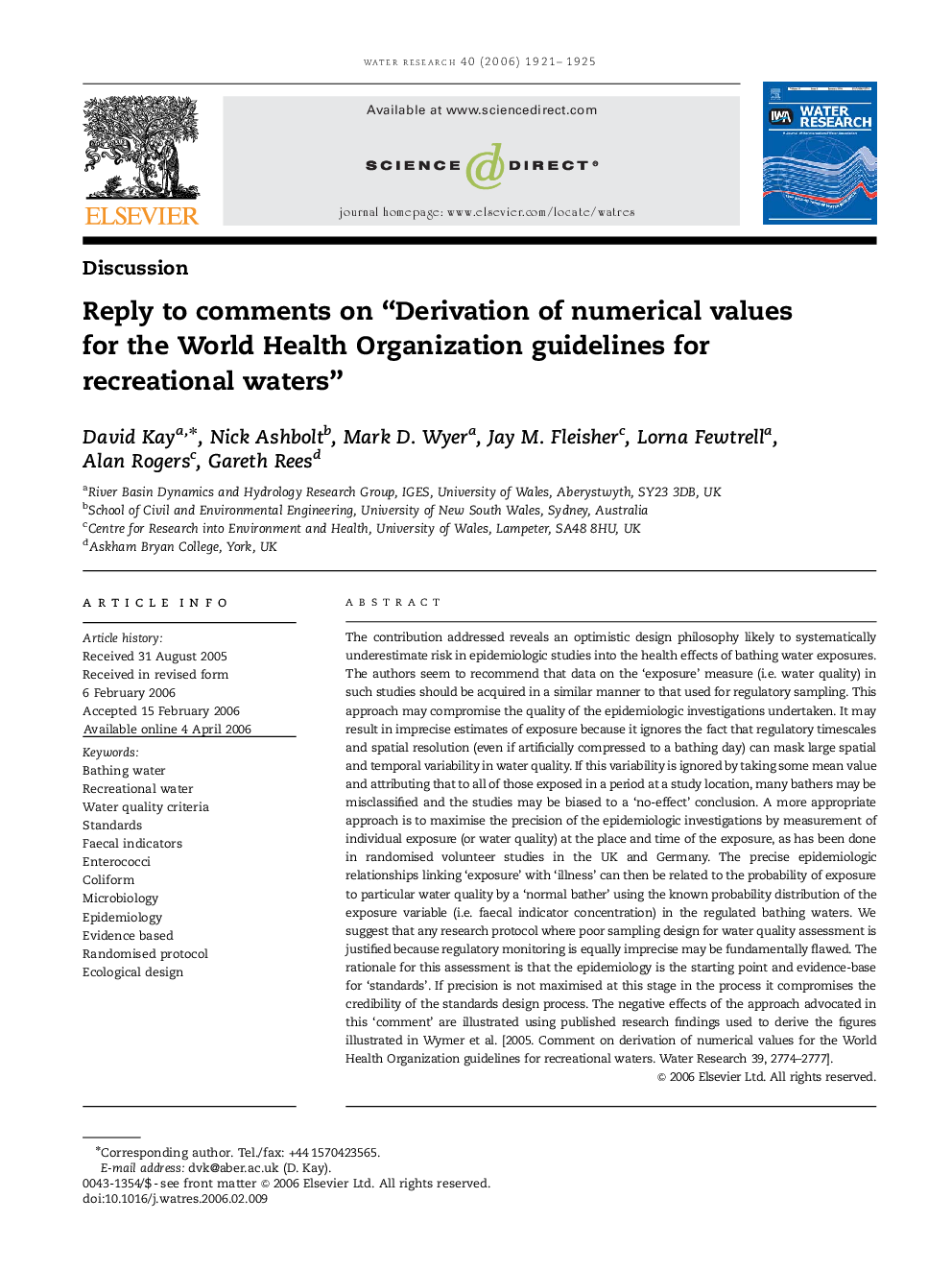| کد مقاله | کد نشریه | سال انتشار | مقاله انگلیسی | نسخه تمام متن |
|---|---|---|---|---|
| 4486330 | 1316984 | 2006 | 5 صفحه PDF | دانلود رایگان |

The contribution addressed reveals an optimistic design philosophy likely to systematically underestimate risk in epidemiologic studies into the health effects of bathing water exposures. The authors seem to recommend that data on the ‘exposure’ measure (i.e. water quality) in such studies should be acquired in a similar manner to that used for regulatory sampling. This approach may compromise the quality of the epidemiologic investigations undertaken. It may result in imprecise estimates of exposure because it ignores the fact that regulatory timescales and spatial resolution (even if artificially compressed to a bathing day) can mask large spatial and temporal variability in water quality. If this variability is ignored by taking some mean value and attributing that to all of those exposed in a period at a study location, many bathers may be misclassified and the studies may be biased to a ‘no-effect’ conclusion. A more appropriate approach is to maximise the precision of the epidemiologic investigations by measurement of individual exposure (or water quality) at the place and time of the exposure, as has been done in randomised volunteer studies in the UK and Germany. The precise epidemiologic relationships linking ‘exposure’ with ‘illness’ can then be related to the probability of exposure to particular water quality by a ‘normal bather’ using the known probability distribution of the exposure variable (i.e. faecal indicator concentration) in the regulated bathing waters. We suggest that any research protocol where poor sampling design for water quality assessment is justified because regulatory monitoring is equally imprecise may be fundamentally flawed. The rationale for this assessment is that the epidemiology is the starting point and evidence-base for ‘standards’. If precision is not maximised at this stage in the process it compromises the credibility of the standards design process. The negative effects of the approach advocated in this ‘comment’ are illustrated using published research findings used to derive the figures illustrated in Wymer et al. [2005. Comment on derivation of numerical values for the World Health Organization guidelines for recreational waters. Water Research 39, 2774–2777].
Journal: Water Research - Volume 40, Issue 9, May 2006, Pages 1921–1925